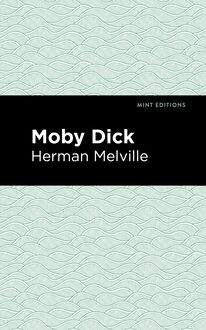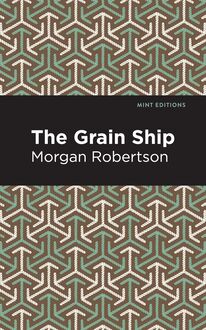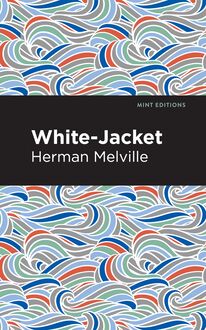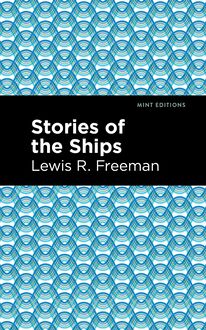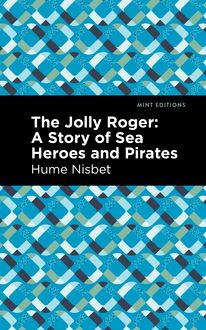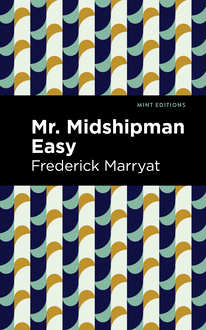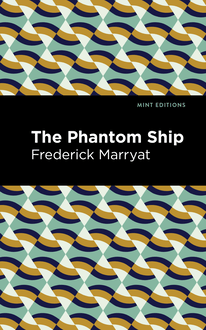-
 Univers
Univers
-
 Ebooks
Ebooks
-
 Livres audio
Livres audio
-
 Presse
Presse
-
 Podcasts
Podcasts
-
 BD
BD
-
 Documents
Documents
-
- Cours
- Révisions
- Ressources pédagogiques
- Sciences de l’éducation
- Manuels scolaires
- Langues
- Travaux de classe
- Annales de BEP
- Etudes supérieures
- Maternelle et primaire
- Fiches de lecture
- Orientation scolaire
- Méthodologie
- Corrigés de devoir
- Annales d’examens et concours
- Annales du bac
- Annales du brevet
- Rapports de stage
La lecture à portée de main
Vous pourrez modifier la taille du texte de cet ouvrage
Découvre YouScribe en t'inscrivant gratuitement
Je m'inscrisDécouvre YouScribe en t'inscrivant gratuitement
Je m'inscrisEn savoir plus
Vous pourrez modifier la taille du texte de cet ouvrage
En savoir plus

Description
Mr. Midshipman Easy (1836) is a novel by Frederick Marryat. Inspired by the author’s experience as a captain in the Royal Navy, Mr. Midshipman Easy is a tale of bravery, foolishness, and the manifold reasons for men to take to the high seas. Frequently funny, often profound, Marryat’s novel is an underappreciated classic of nineteenth century fiction that has been adapted twice for British cinema.
“‘Then, father, all I have to say is, that I swear by the rights of man I will not go back to school, and that I will go to sea. Who and what is to prevent me? Was not I born my own master?—has any one a right to dictate to me as if I were not his equal? Have I not as much right to my share of the sea as any other mortal? I stand upon perfect equality,’ continued Jack, stamping his right foot on the floor.” Fueled by his father’s philosophical ideas on liberty and equality, Jack Easy decides he will prove himself in a place where all men are equals. Despite his bravery, he soon finds that ideals will get one nowhere in the service of the Royal Navy. Working below deck with the African cook Mephistopheles Faust, Jack learns the secrets of the ship and encounters a lesson in discipline he will never forget. As he rises through the ranks and makes a name for himself during the fierce fighting of the Napoleonic Wars, Jack discovers new depths to his fortitude that would never have showed themselves had he stayed on land.
With a beautifully designed cover and professionally typeset manuscript, this edition of Frederick Marryat’s Mr. Midshipman Easy is a classic of British literature reimagined for modern readers.
Sujets
Informations
| Publié par | Mint Editions |
| Date de parution | 21 juin 2021 |
| Nombre de lectures | 0 |
| EAN13 | 9781513294292 |
| Langue | English |
Informations légales : prix de location à la page 0,0500€. Cette information est donnée uniquement à titre indicatif conformément à la législation en vigueur.
Extrait
Mr. Midshipman Easy
Frederick Marryat
Mr. Midshipman Easy was first published in 1836.
This edition published by Mint Editions 2021.
ISBN 9781513291444 | E-ISBN 9781513294292
Published by Mint Editions®
minteditionbooks.com
Publishing Director: Jennifer Newens
Design & Production: Rachel Lopez Metzger
Project Manager: Micaela Clark
Typesetting: Westchester Publishing Services
C ONTENTS
I. Which the Reader Will Find Very Easy to Read
II. In Which Mrs. Easy, as Usual, Has Her Own Way
III. In Which Our Hero Has to Wait the Issue of an Argument
IV. In Which the Doctor Prescribes Going to School as a Remedy for a Cut Finger
V. Jack Easy is Sent to a School at Which There is No Flogging
VI. In Which Jack Makes Essay of His Father’s Sublime Philosophy and Arrives Very Near to Truth at Last
VII. In Which Jack Makes Some Very Sage Reflections, and Comes to a Very Unwise Decision
VIII. In Which Mr. Easy has His First Lesson as to Zeal in His Majesty’s Service
IX. In Which Mr. Easy Finds Himself on the Other Side of the Bay of Biscay
X. Showing How Jack Transgresses Against His Own Philosophy
XI. In Which Our Hero Proves That All on Board Should Equally Sacrifice Decency to Duty
XII. In Which Our Hero Prefers Going Down to Going Up; A Choice, it is to be Hoped, He Will Reverse Upon a More Important Occasion
XIII. In Which Our Hero Begins to Act and Think for Himself
XIV. In Which Our Hero Finds That Disagreeable Occurrences Will Take Place on a Cruise
XV. In Which Mutiny, Like Fire, is Quenched for Want of Fuel and No Want of Water
XVI. In Which Jack’s Cruise is Ended, and He Regains the Harpy
XVII. In Which Our Hero Finds Out That Trigonometry is Not Only Necessary to Navigation, But May Be Required in Settling Affairs of Honour
XVIII. In Which Our Hero Sets Off on Another Cruise, in Which He is Not Blown Off Shore
XIX. In Which Our Hero Follows his Destiny and Forms a Tableau
XX. A Long Story, Which the Reader Must Listen to, as Well as Our Hero
XXI. In Which Our Hero is Brought Up All Standing Under a Press of Sail
XXII. Our Hero is Sick with the Service, But Recovers with Proper Medicine—An Argument, Ending, as Most Do, in a Blow Up—Mesty Lectures Upon Craniology
XXIII. Jack Goes on Another Cruise—Love and Diplomacy—Jack Proves Himself Too Clever for Three, and Upsets All the Arrangements of the High Contracting Powers
XXIV. Our Hero Plays the Very Devil
XXV. In Which The Old Proverb Is Illustrated, “That You Must Not Count Your Chickens Before They Are Hatched”
XXVI. In Which Our Hero Becomes Excessively Unwell, and Agrees To Go Through a Course of Medicine
XXVII. In Which Captain Wilson is Repaid With Interest for Jack’s Borrowing His Name; Proving That a Good Name is as Good as a Legacy
XXVIII. “Philosophy Made Easy” Upon Agrarian Principles, the Subject of Some Uneasiness to Our Hero—The First Appearance, But Not the Last, of an Important Personage
XXIX. In Which Our Hero Sees a Little More Service, and is Better Employed Than in Fighting Don Silvio
XXX. Modern Philanthropy Which, as Usual, is the Cause of Much Trouble and Vexation
XXXI. A Regular Set-To, in Which the Parties Beaten are Not Knocked Down, But Rise Higher and Higher at Each Discomfiture—Nothing But the Troops Could Have Prevented Them From Going Up to Heaven
XXXII. In Which Our Hero and Gascoigne Ought to Be Ashamed of Themselves, and Did Feel What Might Be Called Midshipmite Compunction
XXXIII. In Which Mesty Should Be Called Throughout Mephistopheles, for it Abounds in Black Cloaks, Disguises, Daggers, and Dark Deeds
XXXIV. Jack Leaves the Service, in Which He Had No Business, and Goes Home to Mind His Own Business
XXXV. Mr. Easy’s Wonderful Invention Fully Explained by Himself—Much to the Satisfaction of Our Hero, and, it is to be Presumed, to that Also of the Reader
XXXVI. In Which Jack Takes Up the Other Side of the Argument, and Proves That He Can Argue as Well on One Side as the Other
XXXVII. In Which Our Hero Finds Himself an Orphan, and Resolves to Go to Sea Again, Without the Smallest Idea of Equality
XXXVIII. In Which Our Hero, as Usual, Gets Into the Very Middle of it
XXXIX. A Council of War, in Which Jack Decides that He Will Have One More Cruise
XL. In Which There is Another Slight Difference of Opinion Between Those Who Should Be Friends
XLI. Which Winds Up the Nautical Adventures of Mr. Midshipman Easy
I
W HICH THE R EADER W ILL F IND V ERY E ASY TO R EAD.
Mr. Nicodemus Easy was a gentleman who lived down in Hampshire; he was a married man, and in very easy circumstances. Most couples find it very easy to have a family, but not always quite so easy to maintain them. Mr. Easy was not at all uneasy on the latter score, as he had no children; but he was anxious to have them, as most people covet what they cannot obtain. After ten years, Mr. Easy gave it up as a bad job. Philosophy is said to console a man under disappointment, although Shakespeare asserts that it is no remedy for toothache; so Mr. Easy turned philosopher, the very best profession a man can take up, when he is fit for nothing else; he must be a very incapable person indeed who cannot talk nonsense. For some time, Mr. Easy could not decide upon what description his nonsense should consist of; at last he fixed upon the rights of man, equality, and all that; how every person was born to inherit his share of the earth, a right at present only admitted to a certain length that is about six feet, for we all inherit our graves, and are allowed to take possession without dispute. But no one would listen to Mr. Easy’s philosophy. The women would not acknowledge the rights of men, whom they declared always to be in the wrong; and, as the gentlemen who visited Mr. Easy were all men of property, they could not perceive the advantages of sharing with those who had none. However, they allowed him to discuss the question, while they discussed his port wine. The wine was good, if the arguments were not, and we must take things as we find them in this world.
While Mr. Easy talked philosophy, Mrs. Easy played patience, and they were a happy couple, riding side by side on their hobbies, and never interfering with each other. Mr. Easy knew his wife could not understand him, and therefore did not expect her to listen very attentively; and Mrs. Easy did not care how much her husband talked, provided she was not put out in her game. Mutual forbearance will always ensure domestic felicity.
There was another cause for their agreeing so well. Upon any disputed question Mr. Easy invariably gave it up to Mrs. Easy, telling her that she should have her own way—and this pleased his wife; but, as Mr. Easy always took care, when it came to the point, to have his way, he was pleased as well. It is true that Mrs. Easy had long found out that she did not have her own way long; but she was of an easy disposition, and as, in nine cases out of ten, it was of very little consequence how things were done, she was quite satisfied with his submission during the heat of the argument. Mr. Easy had admitted that she was right, and if like all men he would do wrong, why what could a poor woman do? With a lady of such a quiet disposition, it is easy to imagine that the domestic felicity of Mr. Easy was not easily disturbed. But, as people have observed before, there is a mutability in human affairs. It was at the finale of the eleventh year of their marriage that Mrs. Easy at first complained that she could not enjoy her breakfast. Mrs. Easy had her own suspicions, everybody else considered it past doubt, all except Mr. Easy; he little “thought, good easy man, that his greatness was ripening;” he had decided that to have an heir was no easy task, and it never came into his calculations that there could be a change in his wife’s figure. You might have added to it, subtracted from it, divided it, or multiplied it, but as it was a zero, the result would be always the same. Mrs. Easy also was not quite sure—she believed it might be the case, there was no saying; it might be a mistake, like that of Mrs. Trunnion’s in the novel, and, therefore, she said nothing to her husband about the matter. At last Mr. Easy opened his eyes, and when, upon interrogating his wife, he found out the astounding truth, he opened his eyes still wider, and then he snapped his fingers, and danced, like a bear upon hot plates, with delight, thereby proving that different causes may produce similar effects in two instances at one and the same time. The bear dances from pain, Mr. Easy from pleasure; and again, when we are indifferent, or do not care for anything, we snap our fingers at it, and when we are overjoyed and obtain what we most care for, we also snap our fingers. Two months after Mr. Easy snapped his fingers, Mrs. Easy felt no inclination to snap hers, either from indifference or pleasure. The fact was, that Mrs. Easy’s time was come, to undergo what Shakespeare pronounces “the pleasing punishment that women bear;” but Mrs. Easy, like the rest of her sex, declared, “that all men were liars,” and most particularly poets.
But while Mrs. Easy was suffering, Mr. Easy was in ecstasies. He laughed at pain, as all philosophers do when it is suffered by other people, and not by themselves.
In due course of time, Mrs. Easy presented her husband with a fine boy, whom we present to the public as our hero.
II
I N W HICH M RS. E ASY, AS U SUAL, H AS H ER O WN W AY.
It was the fourth day after Mrs. Easy’s confinement that Mr. Easy, who was sitting by her bedside in an easy-chair, commenced as follows: “I
-
 Univers
Univers
-
 Ebooks
Ebooks
-
 Livres audio
Livres audio
-
 Presse
Presse
-
 Podcasts
Podcasts
-
 BD
BD
-
 Documents
Documents
-
Jeunesse
-
Littérature
-
Ressources professionnelles
-
Santé et bien-être
-
Savoirs
-
Education
-
Loisirs et hobbies
-
Art, musique et cinéma
-
Actualité et débat de société
-
Jeunesse
-
Littérature
-
Ressources professionnelles
-
Santé et bien-être
-
Savoirs
-
Education
-
Loisirs et hobbies
-
Art, musique et cinéma
-
Actualité et débat de société
-
Actualités
-
Lifestyle
-
Presse jeunesse
-
Presse professionnelle
-
Pratique
-
Presse sportive
-
Presse internationale
-
Culture & Médias
-
Action et Aventures
-
Science-fiction et Fantasy
-
Société
-
Jeunesse
-
Littérature
-
Ressources professionnelles
-
Santé et bien-être
-
Savoirs
-
Education
-
Loisirs et hobbies
-
Art, musique et cinéma
-
Actualité et débat de société
- Cours
- Révisions
- Ressources pédagogiques
- Sciences de l’éducation
- Manuels scolaires
- Langues
- Travaux de classe
- Annales de BEP
- Etudes supérieures
- Maternelle et primaire
- Fiches de lecture
- Orientation scolaire
- Méthodologie
- Corrigés de devoir
- Annales d’examens et concours
- Annales du bac
- Annales du brevet
- Rapports de stage



